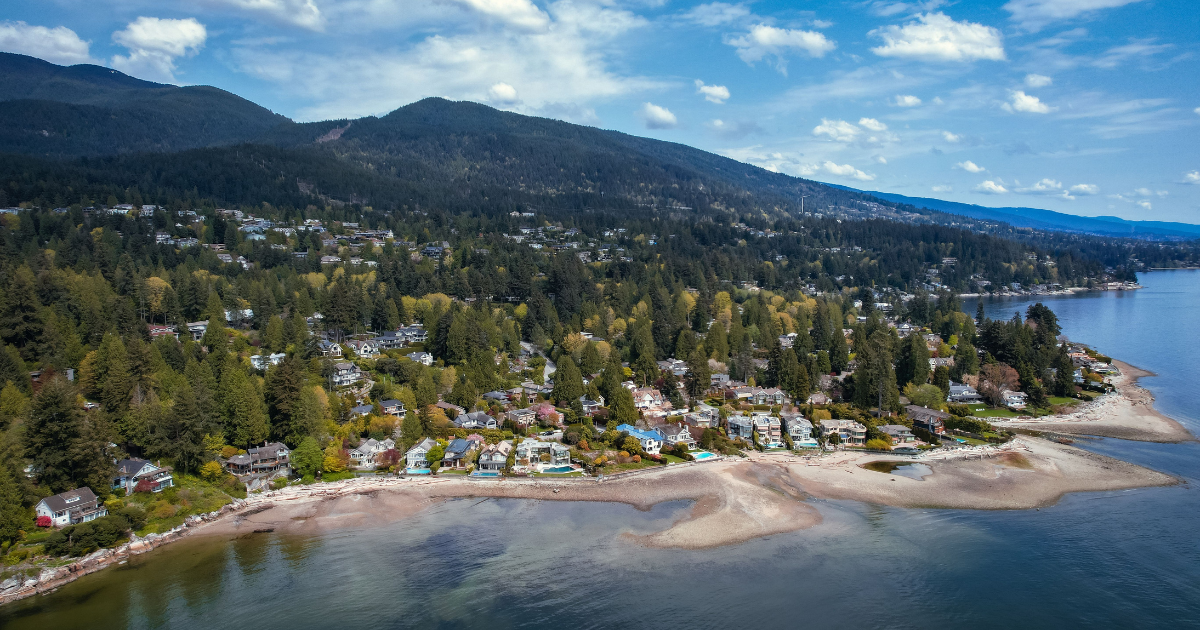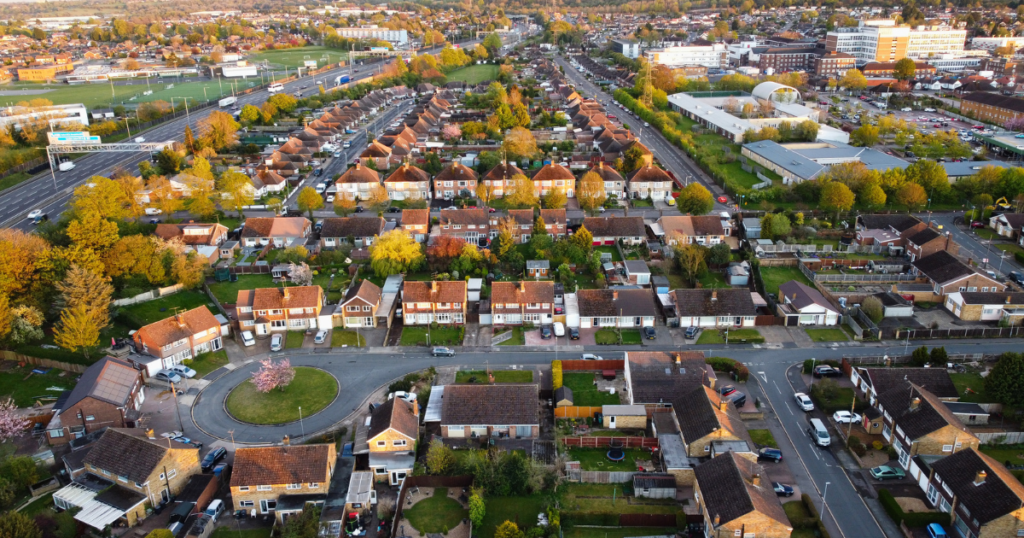The quest for affordable housing in British Columbia (BC) is like navigating a complex labyrinth. With its stunning landscapes and vibrant cities, BC attracts a myriad of people, but the burning question remains: Can one find a haven without breaking the bank?

Is British Columbia Expensive to Live in?
BC, known for its picturesque views and high standard of living, often comes with a price tag to match. When compared to other Canadian provinces, BC sits on the higher end of the cost spectrum. The cost of living in cities like Vancouver is notably steep, making the dream of affordable housing somewhat elusive for many.
Can I Find Affordable Homes to Buy in British Columbia?
Finding affordable homes in British Columbia (BC), Canada, is a question that many prospective homeowners and real estate investors ask.
The challenge lies in the province’s diverse real estate market, which includes some of Canada’s most expensive areas, such as Vancouver and its surrounding regions, as well as more affordable regions, particularly in rural areas or smaller towns.
Related: Top 15 family-friendly neighborhoods in British Columbia
Urban vs. Rural Real Estate in BC
In major cities like Vancouver and Victoria, the real estate market is notoriously expensive. These areas are known for high living costs, making it challenging to find affordable homes, especially within the city centers.
However, the further you move away from these urban hubs, the more likely you are to find lower-priced properties. Smaller towns and rural areas in BC often offer significantly more affordable housing options.
Exploring Different Regions
1. Northern BC: Regions like Prince George offer more affordable housing compared to the southern part of the province. These areas might appeal to those looking for quieter, more spacious living environments.
2. Interior BC: Cities like Kamloops and Kelowna in the Okanagan Valley of BC offer a balance between affordability and access to amenities. The cost of living here is lower than in the Greater Vancouver area and there are a bunch of things to do in Okanagan Valley.
3. Vancouver Island: Outside of Victoria, there are areas on Vancouver Island where housing can be more affordable, with the added benefit of coastal living.
The Impact of Market Trends
The real estate market in BC, like any market, is subject to fluctuations. Economic factors, interest rates, and supply and demand all play a role in housing affordability. Keeping an eye on market trends can help in identifying the right time to buy.
Government Programs and Incentives
The BC government offers various programs and incentives that can aid in purchasing a home. These include first-time home buyer grants, property transfer tax exemptions, and other supportive measures designed to make housing more accessible, especially for those entering the market for the first time.
Related: Eco-friendly homes in British Columbia: Innovative and sustainable living
Cheapest Places to Buy a House in BC
Finding affordable housing in British Columbia (BC) is a challenge, especially in a real estate market known for its high prices in areas like Vancouver and Victoria. However, there are still regions in BC where you can find homes at more accessible prices.
Here’s a look at the cheapest places to buy a house in BC, categorized by different price ranges: under $50,000, under $100,000, under $300,000, and under $500,000.
1. Houses Under $50,000
- Location: Typically, homes in this price range are located in very rural or remote areas of BC. They might be considerable distances from major cities or towns.
- Type of Housing: These are often older homes, cabins, or mobile homes that may require significant renovations or repairs.
- Example Area: Some parts of the Northern BC region, like the outskirts of smaller towns, might have properties in this price range.
2. Houses Under $100,000
- Location: Small towns or rural areas further from urban centers. In some cases, these might be located in less popular or more isolated regions of the province.
- Type of Housing: These can include older single-family homes, fixer-uppers, or more substantial mobile homes.
- Example Area: Places like Fort St. John or the Bulkley-Nechako region might offer homes within this price bracket.
3. Houses Under $300,000
- Location: These homes are more likely to be found in smaller cities or towns, often in the interior of BC or in the northern parts of the province.
- Type of Housing: This range can include a variety of homes, from newer townhouses and condos to older, detached single-family homes.
- Example Area: Cities like Prince George, Quesnel, and parts of the Kootenays may offer homes in this price range.
4. Houses Under $500,000
- Location: This price range opens up options in some suburban areas or smaller cities, potentially closer to larger urban centers.
- Type of Housing: Homes in this bracket can be newer and may require less renovation. They might include detached houses, townhouses, and newer condos.
- Example Area: Areas on the outskirts of the Greater Vancouver Area, like parts of Fraser Valley, or cities like Kamloops and Kelowna.
Additional Considerations
It’s important to note that while these price ranges offer a general guideline, the real estate market is dynamic and prices can fluctuate. Factors like proximity to amenities, the state of the property, and the local economy can all influence housing prices.
Moreover, buying in these more affordable regions often means being further away from major urban centers, which could impact your lifestyle and commuting options.
Related: Exploring the charm of British Columbia waterfront properties
A Break Down of the Average Prices of Homes in British Columbia
Breaking down the average prices of homes in British Columbia (BC) involves understanding a diverse and dynamic real estate market, with significant variations across different regions and cities. Here’s a detailed overview:
1. Greater Vancouver Area
- Overview: The most expensive region in BC, known for its high demand and limited supply.
- Average Prices: As of early 2023, the average price for a home in Vancouver can range well above $1 million, with detached homes often costing more.
- Key Areas: Vancouver, Burnaby, Richmond, and North Vancouver are among the most expensive.
2. Victoria and Vancouver Island
- Overview: Victoria, being a major city on Vancouver Island, has higher prices compared to other parts of the island.
- Average Prices: In Victoria, average home prices often hover around $800,000 to $1 million, with variations depending on the neighborhood.
- Key Areas: Central Victoria tends to be pricier, while more affordable options might be found in the northern parts of the island or in smaller towns.
3. Okanagan Valley
- Overview: Known for its wineries and pleasant climate, the Okanagan Valley has a varied market.
- Average Prices: In areas like Kelowna, average home prices can range from $600,000 to $800,000.
- Key Areas: Kelowna and Penticton are popular, with prices varying by proximity to waterfronts and downtown areas.
4. Fraser Valley
- Overview: A growing area with more affordable options compared to Greater Vancouver.
- Average Prices: Prices here can range from $500,000 to $700,000 on average, with variations between towns.
- Key Areas: Surrey, Langley, and Abbotsford are major cities with relatively lower prices than Vancouver.
5. Interior BC
- Overview: Includes smaller cities and rural areas, offering more affordable housing options.
- Average Prices: In cities like Kamloops or Prince George, average prices can range from $400,000 to $600,000.
- Key Areas: Kamloops, Prince George, and smaller towns in the region.
6. Northern BC
- Overview: The most affordable region in BC, with a focus on rural and small-town living.
- Average Prices: Here, it’s possible to find homes averaging between $200,000 to $400,000.
- Key Areas: Fort St. John, Prince Rupert, and Terrace offer some of the most affordable housing in BC.
Note: Real estate prices are subject to change based on economic conditions, interest rates, and local developments. Prices also vary significantly based on the type of property (e.g., detached home, condo, townhouse) and its condition or age.
Related: First-time home buyer tips in British Columbia
When is the Best Time to Search for a Home in BC?
Determining the best time to search for a home in British Columbia (BC) involves considering several factors, including market trends, seasonal fluctuations, and personal circumstances. Here’s an overview:
1. Seasonal Trends
- Spring and Summer: Traditionally, these seasons are the most active in the real estate market. Sellers often prefer listing their homes during this time due to better weather and curb appeal. However, this also means more competition among buyers, which can drive up prices.
- Fall and Winter: These months typically see a slowdown in the market. There are fewer listings, but also less competition, which can work in a buyer’s favor. Sellers in the market during this time might be more motivated to sell, potentially leading to better deals.
2. Market Fluctuations
- The real estate market is influenced by various economic factors, including interest rates, economic growth, and employment rates. A buyer’s market (more homes for sale than buyers) often presents better opportunities for price negotiations. Conversely, a seller’s market (more buyers than homes for sale) can lead to higher prices and bidding wars.
3. Interest Rates
- Interest rates can significantly impact your home buying power. Lower interest rates can make home buying more affordable, so keeping an eye on rate trends can be beneficial.
4. Personal Circumstances
- Ultimately, the best time to buy a home also depends on personal factors such as your financial readiness, job stability, and life events (e.g., a new job in a different city).
5. Local Market Conditions
- Different regions in BC can have varying market dynamics. For example, the market in Vancouver may operate differently compared to smaller towns in the interior or northern BC. Local real estate professionals can offer valuable insights into the best times to buy in specific areas.
Factors to Consider When Looking for an Affordable Home in British Columbia
When searching for an affordable home in British Columbia (BC), several key factors should be taken into account to ensure you find a property that meets your needs and budget. Here’s a breakdown of essential considerations:
1. Location
- Urban vs. Rural: Urban areas, especially in and around cities like Vancouver and Victoria, tend to be more expensive. More affordable options are often found in rural areas or smaller towns.
- Proximity to Amenities: Consider the distance to workplaces, schools, healthcare facilities, shopping centers, and public transport. Homes further from such amenities might be cheaper but could increase travel costs and time.
2. Real Estate Market Trends
- Stay informed about the current trends in the BC real estate market, including price fluctuations and interest rates. This knowledge can help you time your purchase effectively.
3. Property Type
- Different types of properties (detached houses, townhouses, condos) have varying price ranges. Assess which type suits your lifestyle and budget.
- Older homes might be cheaper but could require more maintenance or renovation costs.
4. Size and Layout
- Consider the size of the property and its layout. A smaller or more efficiently designed home might offer a more affordable option without sacrificing functionality.
5. Future Growth Potential
- Research areas with potential for future growth, which might offer more affordable options now. Such investments can pay off in the long term as the area develops.
6. Property Taxes and Utilities
- Investigate the property tax rates and average utility costs in different areas. These ongoing expenses can significantly impact the overall affordability of a home.
7. Community and Lifestyle
- The community and lifestyle offered by a location are crucial. Consider factors like safety, schools, community services, and recreational opportunities.
8. Resale Value
- Think about the potential resale value of the home. Even if you plan to live there for a long time, it’s important to consider the future marketability of the property.
9. Government Programs and Incentives
- Explore available government programs and incentives for homebuyers in BC, such as the First Time Home Buyers’ Program or property transfer tax exemptions.
10. Legal and Inspection Considerations
- Before finalizing a purchase, ensure a thorough home inspection is conducted to identify any potential issues.
- Understand all legal aspects of the home-buying process, including contracts, title transfers, and any local regulations that might apply.
Affordable Homes in BC – Final Thoughts
British Columbia offers a diverse range of affordable housing options, whether you’re looking for a cozy cottage or a modern apartment. By understanding the local market, timing your search wisely, and considering all relevant factors, you can find your dream home without breaking the bank.
Get ready to embark on your home-buying journey in beautiful British Columbia!
Frequently Asked Questions
What’s the average price of homes in British Columbia?
The average price of homes in British Columbia can vary significantly depending on the location. In major cities like Vancouver, prices tend to be higher compared to smaller towns and rural areas. To get a better understanding of average prices, it's essential to research specific regions within British Columbia.
Are there any hidden costs to consider when buying a home in British Columbia?
Yes, there may be additional costs associated with buying a home in British Columbia. Some of these costs include property taxes, home insurance, maintenance expenses, and closing costs. It's crucial to factor in these expenses when budgeting for your new home.
Is it a good idea to invest in abandoned houses in British Columbia?
Investing in abandoned houses can be a unique opportunity to acquire property at a lower cost. However, it's essential to do thorough research and due diligence before purchasing an abandoned property. Consider the condition of the house, legal aspects, and renovation costs. It can be a rewarding venture if approached carefully.
How do I get started on my home-buying journey in British Columbia?
To get started on your home-buying journey in British Columbia, follow these steps:
- Determine Your Budget: Calculate how much you can afford to spend on a home, factoring in your income, savings, and potential mortgage.
- Research Areas: Explore different regions within British Columbia to identify areas that align with your budget and preferences.
- Work with a Realtor: Consider enlisting the services of a local real estate agent who can help you find suitable properties and navigate the buying process.
- Visit Properties: Schedule viewings of homes that meet your criteria to get a firsthand look at potential options.
- Get Pre-Approved: If you plan to finance your home purchase with a mortgage, it's a good idea to get pre-approved by a lender to understand your borrowing capacity.
- Negotiate and Close: Once you've found the right home, work with your realtor to negotiate the terms and conditions of the sale. Afterward, complete the necessary paperwork to finalize the purchase.
Remember that the key to finding an affordable home in British Columbia is research, careful planning, and seeking professional guidance when needed.



